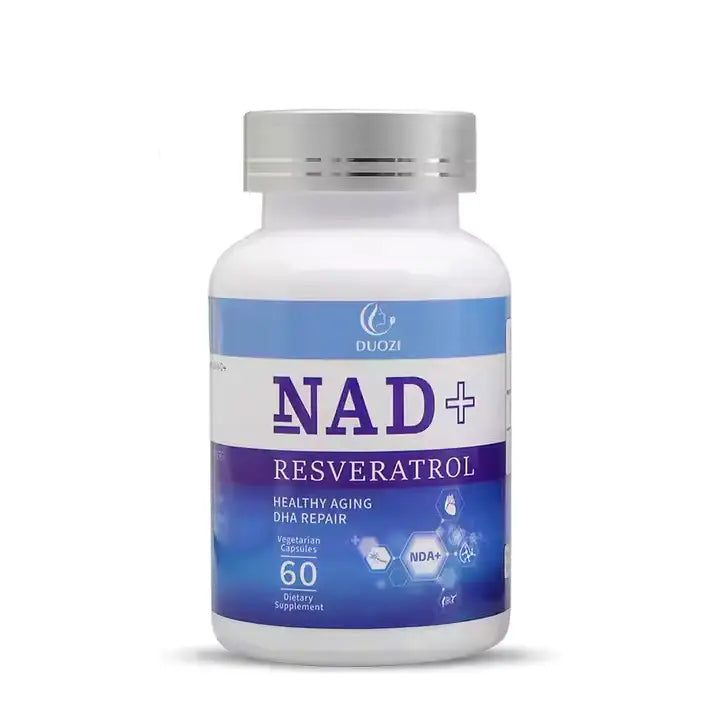Have you ever wondered what the secret is to healthy aging and a vibrant life? In the quest for longevity and optimal health, scientists and researchers have been exploring various elements that could influence how we age. One such element that has captivated the scientific community is NAD, or nicotinamide adenine dinucleotide. This coenzyme, found in all living cells, plays a pivotal role in metabolic processes and has recently been under the spotlight in clinical trials to investigate its potential benefits in aging and overall health.

Understanding NAD: The Basics
Before we delve into the insights from clinical trials, it’s important to grasp what NAD is and why it’s so crucial for your body’s functioning. NAD is a coenzyme found in every cell of your body and is derived from vitamin B3, also known as niacin. It is crucial for energy production, as it assists in converting nutrients from the food you eat into adenosine triphosphate (ATP), which your body uses as fuel.
The Role of NAD in Cellular Metabolism
NAD is intricately involved in cellular metabolism. It acts as a shuttle for electrons during the energy production process in the mitochondria, the powerhouses of your cells. By facilitating these electron transfers, NAD helps in the generation of ATP. Essentially, higher NAD levels contribute to efficient energy production, which is vital for all bodily functions.
NAD’s Influence on DNA Repair
Another critical role of NAD is in DNA repair. Over time, and due to various environmental factors, your DNA suffers damage. NAD assists enzymes, known as sirtuins, in the repair and maintenance of your DNA, helping to minimize genetic errors and potential mutations. This function is essential for maintaining genetic stability and integrity as you age.
NAD and Cellular Communication
Furthermore, NAD plays a role in cellular communication. It serves as a signaling molecule, influencing several enzymatic reactions crucial for maintaining balance and health at the cellular level. This includes communication between the nucleus and mitochondria, which is essential for coordinating energy needs and responses to stress.
What Do NAD Clinical Trials Reveal?
Clinical trials are the gold standard for understanding the efficacy and safety of any medical intervention. NAD has been the subject of numerous trials, each shedding light on its potential role in promoting healthy aging and overall wellness.
NAD Levels and Aging
One of the key findings from clinical trials is the observation that NAD levels decline with age. This decline is associated with a reduction in metabolic efficiency, increased DNA damage, and impaired mitochondrial function. Scientists hypothesize that by boosting NAD levels, it may be possible to counteract some age-related declines in health.
Enhancing NAD Levels: Possible Interventions
Several interventions have been studied to boost NAD levels, including supplementation with NAD precursors like nicotinamide riboside (NR) and nicotinamide mononucleotide (NMN). Trials have shown promising results, indicating that these supplements can elevate NAD levels in humans, which could translate into improved metabolic health and enhanced vitality.
Table: Common NAD Precursors Studied in Clinical Trials
| Supplement | Source | Claimed Benefits |
|---|---|---|
| Nicotinamide Riboside (NR) | Milk, yeast, beer | Increased NAD levels, improved metabolic health |
| Nicotinamide Mononucleotide (NMN) | Fruits and vegetables | Enhanced energy production, supports DNA repair |
Potential Benefits of NAD Supplementation
Research has demonstrated potential benefits of NAD supplementation in a variety of areas:
- Metabolic Health: Studies suggest that increased NAD levels could improve insulin sensitivity, which may aid in managing blood sugar levels and reducing the risk of metabolic disorders.
- Cognitive Function: There’s growing evidence that NAD might support brain health. By improving mitochondrial function, NAD supplementation could enhance cognitive performance and potentially slow down neurodegenerative processes.
- Muscle Function and Endurance: NAD is implicated in muscle repair and growth. Clinical trials have indicated that boosting NAD levels might improve muscle strength, recovery, and endurance, which is particularly beneficial as you age.
FAQs About NAD and Aging
As with any emerging area of research, it’s natural to have questions. Here’s a brief FAQ to address some common inquiries about NAD and its role in aging and health.
What Foods Support NAD Production?
While NAD supplements are popular, certain foods can naturally support NAD production. These include:
- Tryptophan-rich foods: Such as turkey and chicken, which the body can convert into NAD.
- Niacin-rich foods: Including fish, peanuts, and sunflower seeds, all of which can increase NAD levels.
Is NAD Supplementation Safe?
Current research suggests that supplementing with NAD precursors like NR and NMN is generally safe for short-term use. However, as with any supplement, it’s important to consult with a healthcare professional, especially if you have underlying health conditions or are taking other medications.
Can NAD Prevent Aging?
While NAD can’t prevent aging, it may help mitigate some age-related declines. By supporting cellular metabolism and DNA repair, NAD holds promise for improving quality of life as you age.
The Future of NAD Research
The exploration of NAD’s role in health and aging is still in its early stages, but the initial findings are promising. Ongoing research aims to further elucidate NAD’s potential benefits and develop effective strategies for sustaining optimal levels throughout life’s later years.
Research Areas to Watch
- Longevity Studies: As research progresses, more is being uncovered about NAD’s role in possibly extending healthy lifespan. Future studies may reveal the full extent of NAD’s impact on longevity.
- Disease-specific Trials: More trials are focusing on NAD’s role in conditions like Alzheimer’s, diabetes, and cardiovascular disease, offering hope for novel therapeutic strategies.
In closing, NAD is a captivating subject in the realm of health and aging. Its central role in cellular processes, coupled with promising clinical trial findings, positions NAD as a key player in the pursuit of improved health through the ages. As science continues to unravel the intricacies of NAD, there remains a strong interest in its potential to enhance vitality, metabolic health, and perhaps even longevity.

